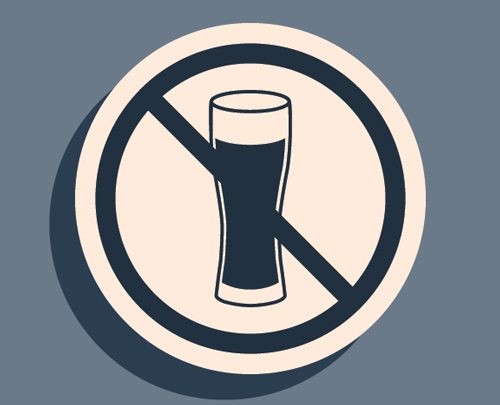This year is the 33rd year of celebrating Alcohol Awareness Month. Started in 1987, the purpose of this month is to increase awareness of alcohol abuse and addiction and its causes. Additional goals for this month include reducing the stigma attached to alcoholism, encouraging communities to take part in events that spotlight alcoholism and alcohol-related issues, highlighting effective available treatments, and encouraging people that recovery can be achieved.
How You Can Help Spread Awareness
When Alcohol Awareness Month was started, it was directed toward college-aged students. Today, although it still focuses strongly on teens and young adults, its messages help individuals of all ages. The theme of this year’s Alcohol Awareness Month is “Help for Today, Hope for Tomorrow.” There are many things you can do to help spread the message and bring awareness to the problems surrounding alcohol abuse and addiction.
- Post about Alcohol Awareness Month on Facebook, Twitter, Instagram, or any other social media group you use. Whether you post about local resources or provide updated facts and information about alcohol abuse, you will be helping to spread the word about alcohol use disorder. Whenever you can, add the hashtag #AlcoholAwarenessMonth to your message.
- Put together an event for your community where families can learn about addiction resources in the area.
- Ask nurses, doctors, and other healthcare professionals to talk to their patients about the health benefits of quitting or limiting the amount of alcohol they drink.
- If you have access to a newsletter, write about Alcohol Awareness Month. Whatever you decide to include will help spread awareness and understanding of the problem to your community.
- Encourage or create educational classes for young people of all ages to help them learn about the dangers of misusing alcohol.
- Talk to parents and share tips with them so they are able to talk to their children about alcohol use and the risks it involves.
How to Talk to Your Children
An article written by the Marine Corps Community Services explains the importance of parents having a conversation with their teenagers about alcohol. As a parent, the information you provide can significantly help in reducing or preventing underage alcohol misuse. Look for those teachable moments and use them as an opening to start a conversation.
The National Council on Alcoholism and Drug Dependence (NCADD) and the Mayo Clinic provide some basic guidelines to help parents talk with their teens.
- Take the time to listen to your child before you talk. Ask their views about alcohol. If they have an interest in drinking, ask why.
- Ask open-ended questions as much as you can, rather than ones that have a “yes” or “no” answer. Talk to your child often about their feelings, activities, and friends.
- Debunk myths about alcohol, such as the myth that it will help you socialize. Explain that it is a depressant and can make you feel angry or sad. Explain the dangers and risks of drinking.
- Always educate your child as they grow about all aspects of good health: psychological, emotional, and physical.
- Take the time to get to know your child’s friends and what they like to do. Talk about peer pressure and what to do if someone offers them a drink. A simple “Do you have soda?” or “No thank you,” are often good responses. Be involved in your child’s life.
- Talk about and set expectations and consequences. Make certain to be clear about the consequences that will occur if a rule is broken.
The Dangers of Alcohol
Alcohol is the most widely used substance by youths in the United States. It takes a combination of education, knowledge, and practical advice to keep teenage experimentation with alcohol from developing into alcohol misuse, abuse, or addiction. Alcohol addiction is a progressive, chronic disease and can be fatal if untreated.
Long-term use of alcohol can lead to the development of alcohol use disorder, neurological impairments, and chronic diseases including stroke, dementia, depression, liver disease, hypertension, and many others. It also leads to social issues such as unemployment, family dysfunction, and isolation.
If you Need Help
Although it takes a cooperative and sustained effort between parents, community leaders, schools, colleges, and America’s young people to address the problem of underage drinking, there is help available now if you or a loved one is suffering from a substance use disorder. Call and speak to a professional staff member at English Mountain Recovery located in Tennessee’s Smoky Mountains. They will answer your questions and help you begin your journey to a clean and sober life.
 To learn more about programs offered at English Mountain Recovery, alcoholism treatment in Tennessee, call and speak with someone today at (877) 615-8569. We are ready to help you or your loved one recover.
To learn more about programs offered at English Mountain Recovery, alcoholism treatment in Tennessee, call and speak with someone today at (877) 615-8569. We are ready to help you or your loved one recover.About the Author: 
Terry Hurley is a retired educational professional and freelance writer with more than fifty years of experience. A former reading specialist and learning center director, Terry loved her years working with children in the educational field. She has written extensively for print and online publications specializing in education and health issues. For the last six years, her writing focus has been on addiction and mental health issues.





